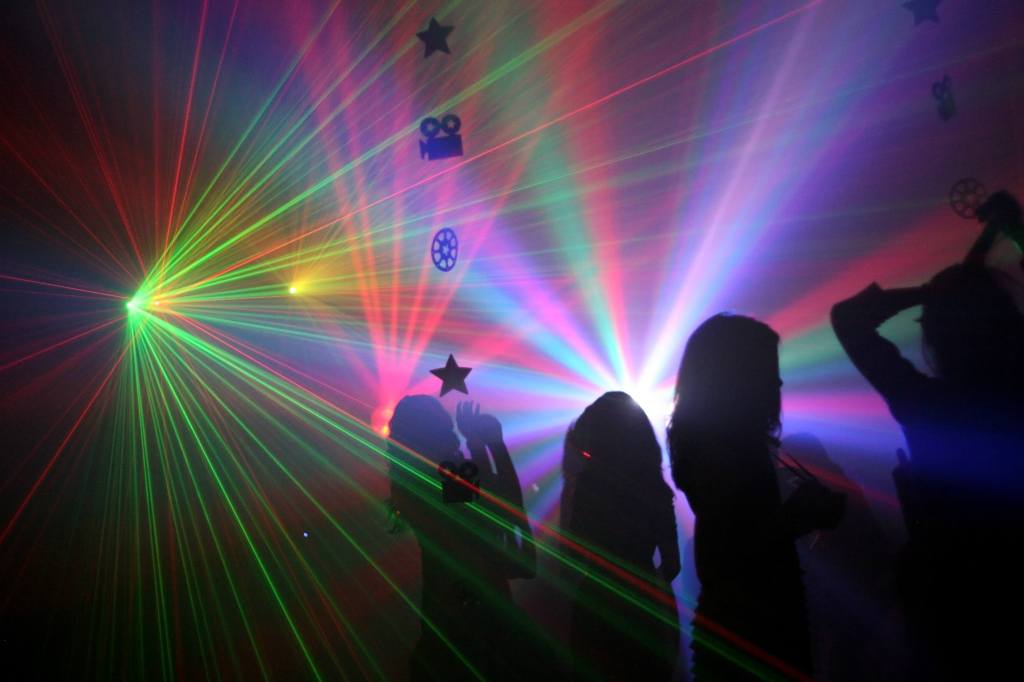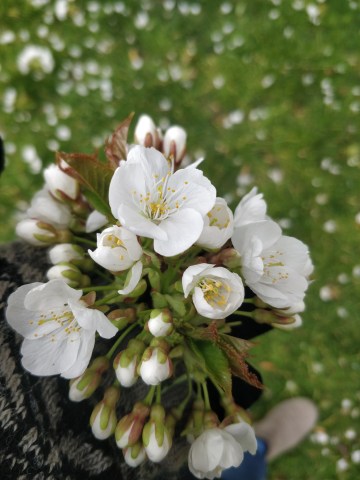Lighting… gigs…?

I’m a theatre lighting designer. We take 3-6 weeks to think about a design. Every instrument is carefully positioned, focused and plotted. We pick our colours carefully, analyse scenes and then spend anywhere between 12-72 hours stuck behind a lighting desk carefully constructing every single moment of a play.
Added to this, I know little about music. Don’t get me wrong… I can play a couple of instruments, sorta, and have lit more musicals in the last few months than the mind can comfortably conceive, but it’s something of a running gag among my friends that my knowledge of ‘popular culture’ (whatever that means) gets a little rusty around 1707.
Which makes the fact that I’ve been lighting gigs at a local venue, really kinda odd. And I’m loving it.
There’s a fine balance to be found between trying to enhance the music, create a mood or lift an exciting experience, without actually becoming distracting. It’s a similar balance to what you do in theatre – light a moment or make a place without drawing attention away from the thing happening on stage – but far more heightened and (this being the slighty nerve-wracking bit) you have to do it without the advantage of fore-knowledge.
That said, I always try and do my research, and look up whoever it is I’m about to light to get a feel for their songs. But even if you know what you want to do, trying to achieve it on the fly is tricky. Particularly when using a lighting desk that was obsolete in conception, let alone in construction – a hideous bit of technology manufactured by people who wouldn’t know a good lighting desk if it fell on them from a great height with a ribbon round it.
Sometimes, I’m beginning to suspect, you run into less technological, than creative difficulties. One group in particular wanted everything dark. As a lighting designer, I read ‘dark’ for being ‘moody’. But oh no. We’re not talking moody. We’re talking dark. A very lovely lady stood by me throughout the gig going, ‘darker, darker!’ and as I pulled channels out and intensities down I felt the overwhelming urge to scratch at the back of my eyeballs. ‘It looks great!’ she exclaimed. ‘It’d look better in blackout!’
‘It’d look black, in blackout,’ I replied. ‘It’d look like nothing that can look at all.’
How to describe the horror of this experience. Of having everything you know, everything you’ve experienced, everything you’ve been trained in, dedicated years of your life to, pulled out beneath your feet by someone who is, technically, more senior (but less experienced) than you hollaring, ‘darker! Darker now!’
I came away from that gig actually shaking. Not merely shaking with aesthetic displeasure – that’s fine – but with the horrible thought that perhaps this was what people wanted. Perhaps people liked their gigs to be invisible, perhaps they wanted to not be able to see the band, perhaps they were okay with the only light source on stage being a bit of red front light. Perhaps all my career I’d got it wrong. The thought horrified me, and for a few days I actually fretted that perhaps I was wrong. Perhaps what I’d been doing was wrong, and I was only a theatre LD, and didn’t know how to light gigs, and I was… wrong.
Thankfully, one week later, my faith in lights, gigs and to a degree, myself, was restored by another event at the same venue. This was for a group led by a woman called Laura Mvula, who I hadn’t heard of (presumably because she was born after 1707) but who it turned out was something of an up-and-coming someone. More to the point – and this is why she actually gets named here – her gig was one of the best I’d seen, both musically and in terms of atmosphere and interaction with the audience.
And she had a proper lighting designer. Proper, in the sense that he was clearly a trained LD with experience of lighting gigs. Lighting designer as well in that, as I had done first time I walked into the venue, he sat down in front of the desk, took one look at it and pulled a facial expression of horror and dismay, at which point my respect for him surged.
And he started programming, and building states, and I helped out as I could with advice on the (hideous) desk (blimey, even as I write this I’ve just had a minor revelation about attribute control off submasters… anyway, moving on…) … and as I watched him work the realisation hit me – joy! Joyous revelation, but he was doing PRECISELY what I would have done in his circumstances. In fact, as I’d already been in for an hour and a half already, he was exactly replicating what I did, but in a slightly different control manner. As there wasn’t time to tell him the full story of how my faith had been shattered the week before, he must have been a bit confused my my jubilant grin, but lo, the gig started and he made exactly the same artistic choices I would have, and I was relieved. Deeply, and utterly relieved.
Lighting designers and writers both don’t get out much. Lighting designers certainly get out and meet directors and designers a lot, but very rarely do we interact with other LDs and thus, after a while, you start to forget that you are part of a community of peers. Sure, there’s the once-monthly meeting of the Association of Lighting Designers you could attend, but generally the conversation is about plugs and control equipment, and you can’t exactly turn on a theatre lighting grid in the pub and go, ‘what do you think of this?’ In short, LDs spend a lot of their time working with people who don’t really get what they do, and trust them to do it well, and thus it can become easy to forget that yes, you are doing a thing that is generally considered Good. And Right. And what others of your professional kin would do in your circumstances.
Writers in many ways have a similar problem. We can read other people’s books and judge them extensively (and we do) but being so immersed in our own writing it can be hard to remember that there’s a world beyond the pages we are absorbed in. This in many ways is why bad reviews hurt writers (and LDs for that matter) so much. We exist in a little bubble of unlikely expertise, absorbed in doing something that not many others do, and when strangers disapprove, we take that as a universal condemnation, having nothing better to go on for ourselves.







